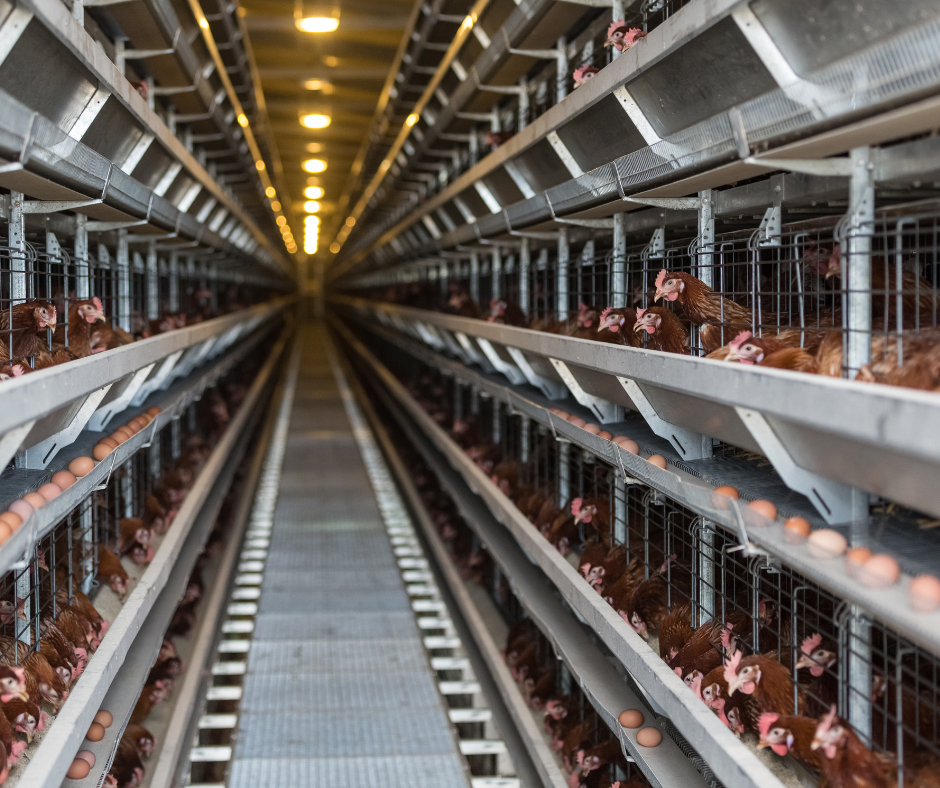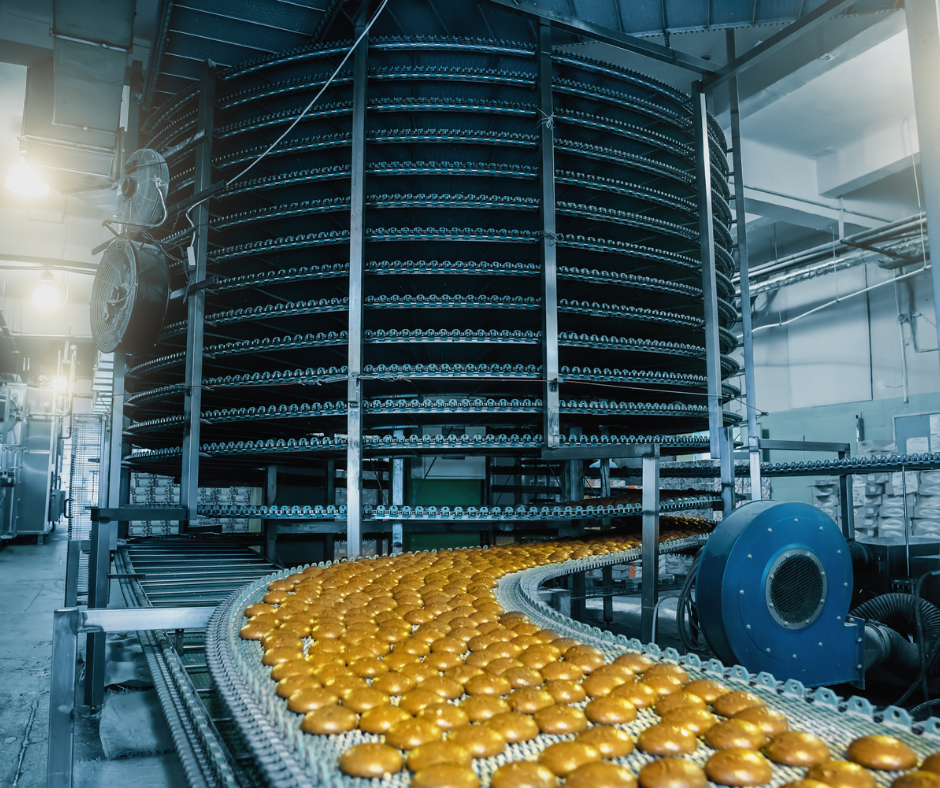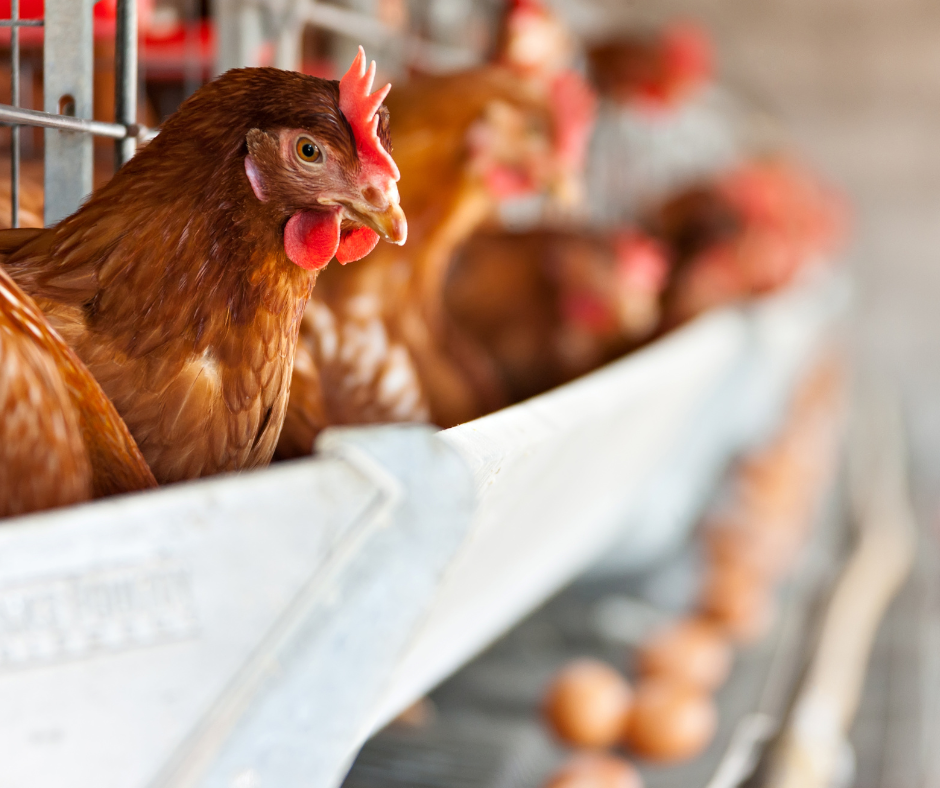Importance of biosecurity
Biosecurity is a combination of sanitary and preventive measures that are essential to prevent and avoid the entry and exit of infectious and contagious organisms. These measures are mandatory in all animal production. There are a large number of infectious diseases whose prevention and control measures are directly related to biosecurity in the poultry farm: Fowl Cholera, Newcastle Disease, Marek’s Disease, Salmonellosis, Coccidiosis, Mycoplasmosis, Colibacillosis, Avian Influenza, etc.
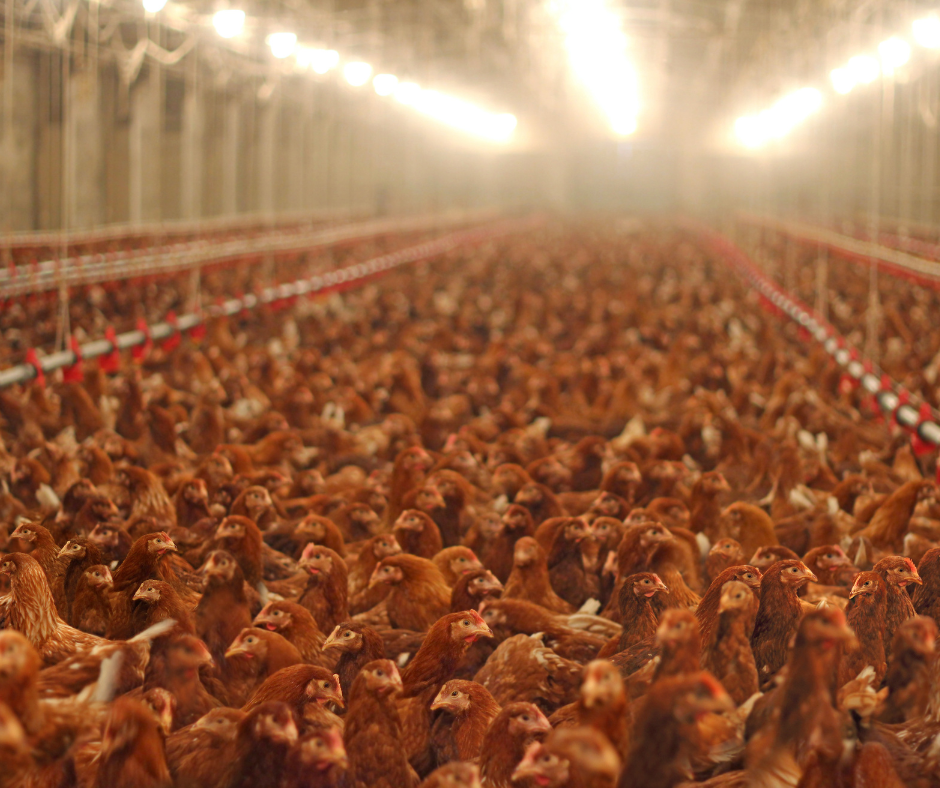
Biosecurity plan
Biosecurity is fundamental in any type of poultry farm as it provides an increase of productivity and economic performance. The biggest risk a poultry farm can face is not having a biosecurity plan. A biosecurity plan should be flexible, easy and practical to implement, so that it can adapt to developments in animal production.
Any biosecurity plan should consider the following aspects:
- Farm construction features (location, construction materials, signage, etc.).
- Control of external animals on the farm (wild animals, insects, rats, mice, etc.).
- Cleaning and disinfection of the farm (house, cages, drinking troughs, feeding troughs and other utensils used on the farm).
- Control of visitors and staff from outside the farm.
- Observation and prevention of feed contamination.
- Checking vaccination and medication programmes of the animals.
- Control of excrements, cadavers, handling of poultry manure, etc.
- Water treatment and flocculation.
- Inspection of animal health and welfare.
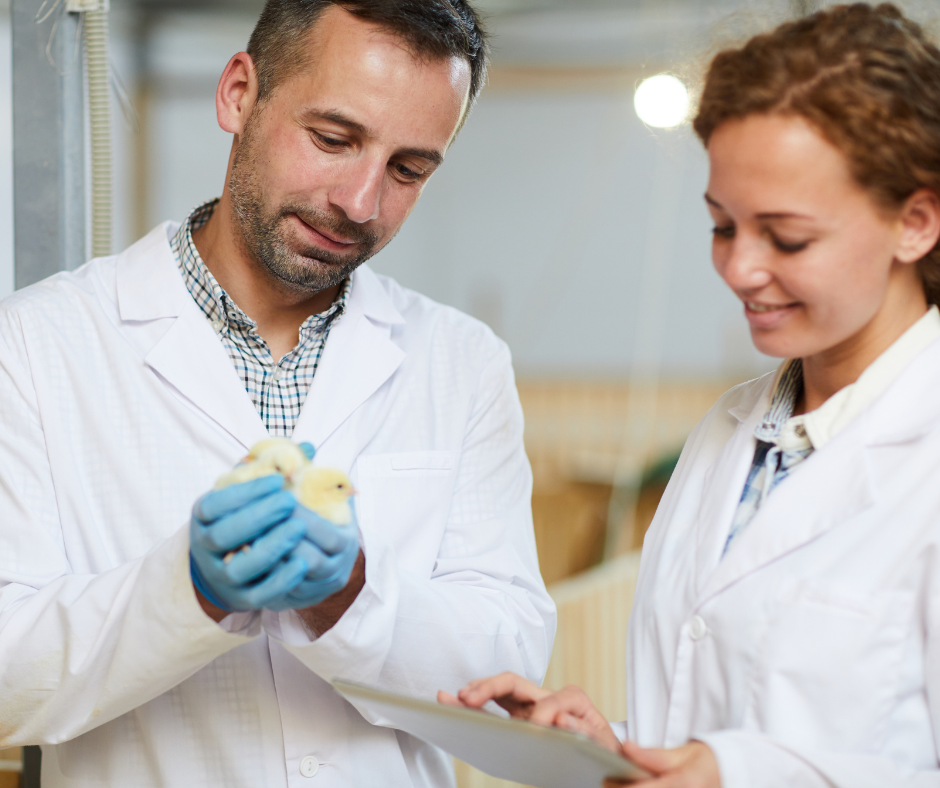
Bio-security measures in a poultry farm
- Cleaning of the farm: this includes processes such as proper sweeping of areas, washing with water and detergents, special and more frequent cleaning of drinkers, feeders, water lines, feed bins, silos, etc. Keep areas adjacent to the farm clean, free of stagnant water and litter to avoid attracting wild birds, rodents and other plagues. Ensure removal of cadavers in and around the farm.
- Disinfection: When all birds in a production cycle have left, the facilities must be emptied, thoroughly washed and disinfected in each area. Disinfection ensures the elimination of micro-organisms. For disinfection, used to use the strongest and most effective products against bacteria and viruses than for cleaning.
- Control of external animals: avoid nesting of other birds in the farm buildings, control contact of birds with other animals living on the farm (cats, dogs), keep poultry separate from other species on the farm (ducks, pigs, etc.).
- Vaccination and animal health control: Vaccination is a vital biosecurity process that must be implemented to control infectious diseases such as Marek’s Disease, Newcastle, Avian Influenza, Salmonella. Animal health monitoring and constant evaluation of prevalent diseases within the premises must also be carried out in order to control them.
- Control of farm personnel: workers must have good hygiene and avoid practices such as eating, drinking or smoking on the premises, spitting, sneezing or coughing. Employees should not be on the farm when they have skin problems or transmissible diseases, as this poses a risk to their health as well as to the birds. It is important that staff keep good records of all processes carried out on the farm such as change and maintenance of equipment, entry and exit of trucks and people, use of disinfectants, mortality and diseases of the birds.
- Control of visits to the farm: make only those visits that are necessary and record them, disinfect vehicles entering and leaving the farm, enter with appropriate and clean equipment, ensuring its subsequent disposal or disinfection, visitors must wear appropriate clothing or protection that belongs to the same farm and is clean, it is advisable that people who have been in recent contact with other farms or have symptoms of respiratory or gastrointestinal diseases do not enter the farm.
- Emergencies: If the birds are sick, a full diagnosis must be made and reported to the relevant authorities in case it is a Notifiable Disease. In addition, appropriate biosecurity measures such as total depopulation and disinfection and slaughter of infected animals must be taken.
Biosecurity requirements for a poultry farm
Other important factors for biosecurity are the location of the farm: it should be located away from urban centers, bird production parks and other farms to avoid airborne contamination. Entry and exit to and from the farm must be comfortable, with cleaning and disinfection mechanisms to avoid movement of micro-organisms. It must have protection from the external environment, prevent the entry of insects, rodents or wild birds and protect against solar radiation, strong winds and rain. The building must be constructed with materials that allow adequate washing, cleaning and disinfection and facilitate these processes. Likewise, all equipment must be regularly maintained to ensure its proper functioning. All areas and their respective activities must be signposted to facilitate their execution and avoid operational errors.

